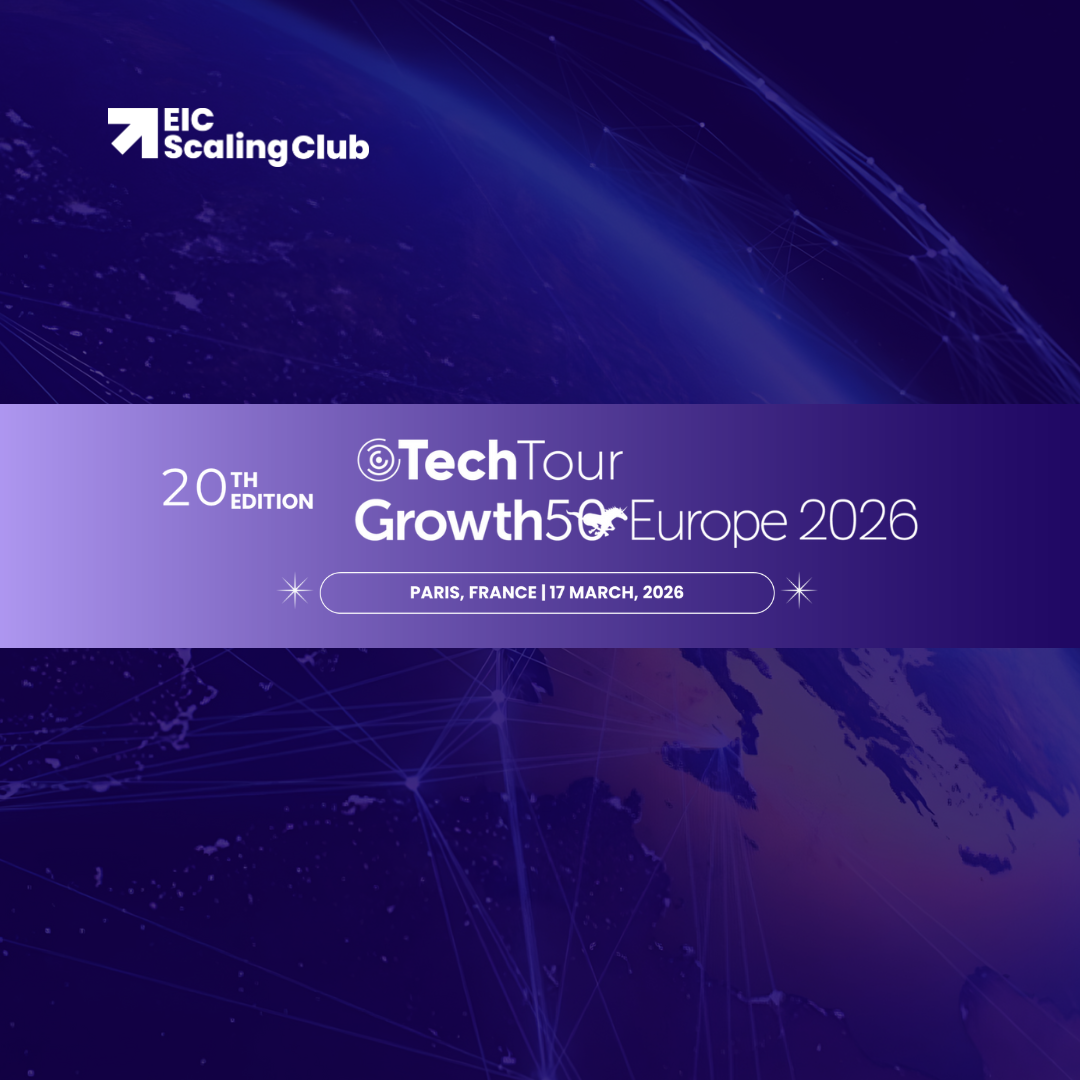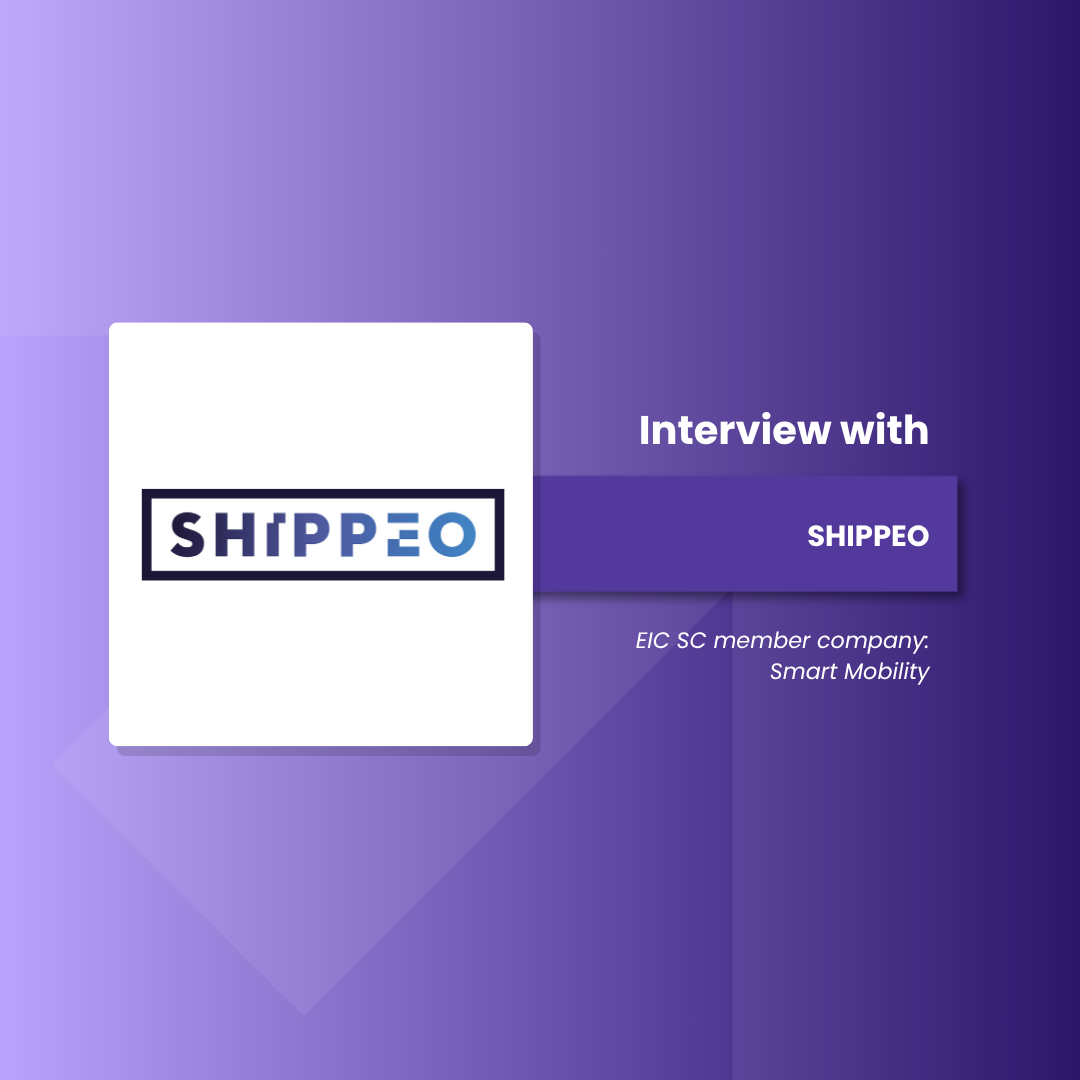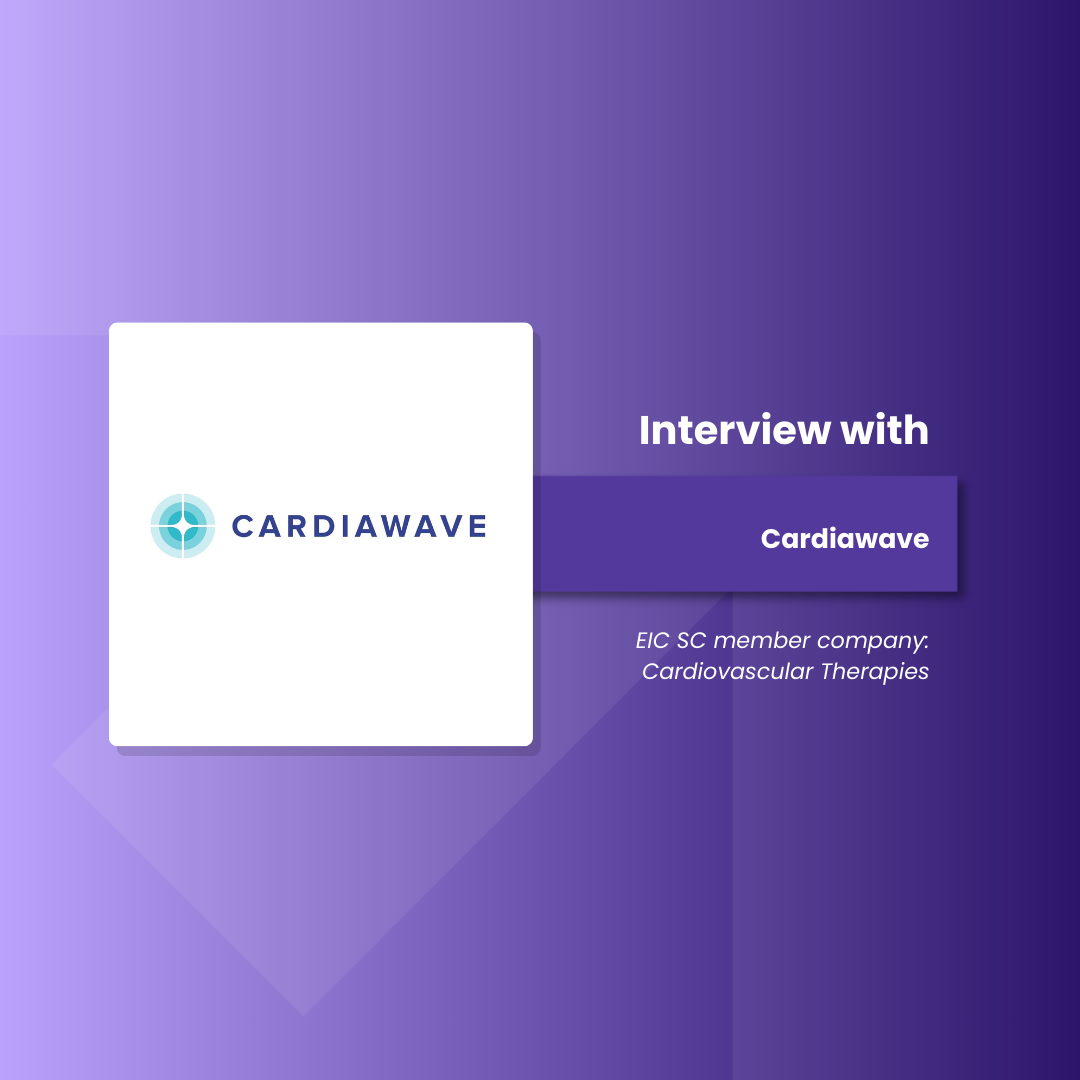15 Jan 2026
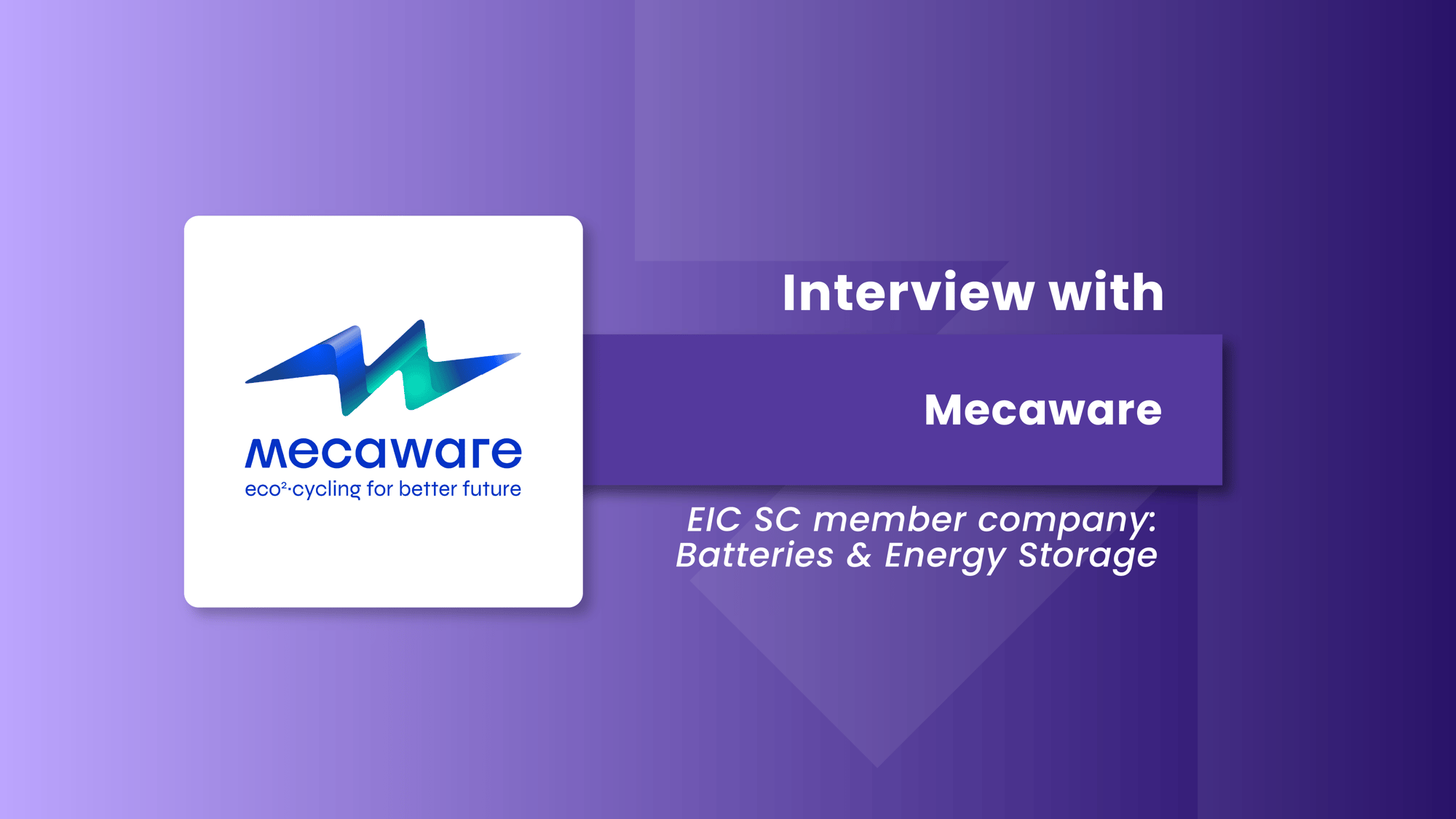
Founded in 2021, the Mecaware team, based in France, has been working diligently to build a new industry in Europe – recycling battery waste to mine it for its strategic metals, including lithium, nickel, manganese, and cobalt. This way it both reduces the waste from batteries and electric vehicles, increases the availability of strategic metals, and does it all with a low environmental footprint.
Founded by a professor in chemistry and an entrepreneur with experience in industrialisation and de-pollution, the team is filled with individuals whose experience complements the mission. That includes the people we spoke with – Mecaware’s COO Benoît Samanos and Program Director Lisa Grasser. Samanos, with a background in environmental services and construction in water and waste management, and Grasser with a background in geology and geopolitics with experience in the mineral industry.
We sat down to discover what they’re up to, the challenges they’ve faced, the mountains they plan to conquer, and how they hope to change Europe’s recycling landscape.
Introducing sulfur-free metallurgy in battery recycling and metal mining
Until now, battery recycling has been done in large scales successfully in Asia. However, their method, while it may work in Asia, is not suited to the European reality. It requires large facilities, vast amounts of sulfur, as well as massive, centralised, recycling systems and supply chains.
Mecaware intends to change this, not only by introducing a sulfur-free (and therefore less environmentally impactful) metallurgy method, but also by meeting the needs of the distributed European recycling industry, and do it all without producing waste byproducts.
“Our process is more compact, and the fact that it's more compact makes it able to be deployed at a lower scale. Rather than doing business as usual, taking the waste and bringing it to the recycling plant, we do the opposite. We bring the recycling plant to the waste area. So it's an innovative process that is leading to an innovative business model.” - Lisa Grasser, Program Director at Mecaware
Mecaware has just begun the construction of their demo plant in France, which will serve as a proof of concept. They expect the first wave of construction to be done by the beginning of 2026 with key functions running.
The key challenges to overcome – time, money, and the lack of a European battery ecosystem
As with any deeptech innovation, the R&D, validation, and scaling up phases are long and capital-intensive. What’s more, Mecaware is just one step in the battery recycling chain. Without a strong battery recycling ecosystem in place, Mecaware is faced with an uphill battle.
“We’re working in the battery industry. But right now, the European battery industry doesn’t exist, really. You have a couple of actors that are already starting to produce batteries, but it’s not a well-established ecosystem. So we are developing an innovative solution while the rest of the ecosystem is also being established in Europe. That makes it even more challenging.” – Lisa Grasser, Program Director at Mecaware
Combined with other major European battery scale-ups facing bankruptcy, Mecaware is concerned that this might impact investors’ appetite to invest in the industry.
However, the upside is massive. With the establishment of these plants, not only can Europe reduce harmful battery waste, but also reintroduce and sell metals into a circular economy for repeated use, with export opportunities as well as geopolitical implications.
“Our business is European, it’s a fully integrated market. The metal we deal with is a European concern. We have partnerships all over Europe. We have off-takers in Europe, Korea, and the US. It’s important for us to be connected to the whole European network. Even beyond, the recycling of strategic metal is a global issue, from Greenland to Ukraine.” – Benoît Samanos, COO of Mecaware
Now that Mecaware has graduated out of the lab and into the plant, it’s looking at using industrial-scale equipment to process between 100kg to 1 tonne of black mass material (dismantled and shredded batteries, ready for metallurgy-stage recycling) per batch. And that's just the demo plant. They expect the full-scale plant to process at least 500x more volume.
Fundraising – a good time to be part of the EIC Scaling Club
Just before our meeting, the Mecaware team shared that they just got off of a call with their personal mentor, who was advising the fundraising process. As a forward-thinking scale-up, Mecaware is currently planning their next funding round – of 50 million EUR by Q2 of 2026. They share that this is a good time to be part of the EIC Scaling Club, as they can harness the available network.
But the benefits of the EIC Scaling Club stretch much further than simply fundraising. Benoit Samanos shares that it’s important for them to meet with other scaleups going through the same process, to share strategies and experiences. But also, to meaningfully connect with people within their industry.
“Thanks to the EIC Scaling Club, we managed to meet a person with relevant experience in the same field as us. So it’s a good way to confront our strategy and gain market insight. Because our market is very closed and a lot of the information is very confidential, these contacts are helpful to access insider details.” – Benoît Samanos, COO of Mecaware
Follow along with their journey and projects by following them on Linkedin or their website.
About the EIC Scaling Club
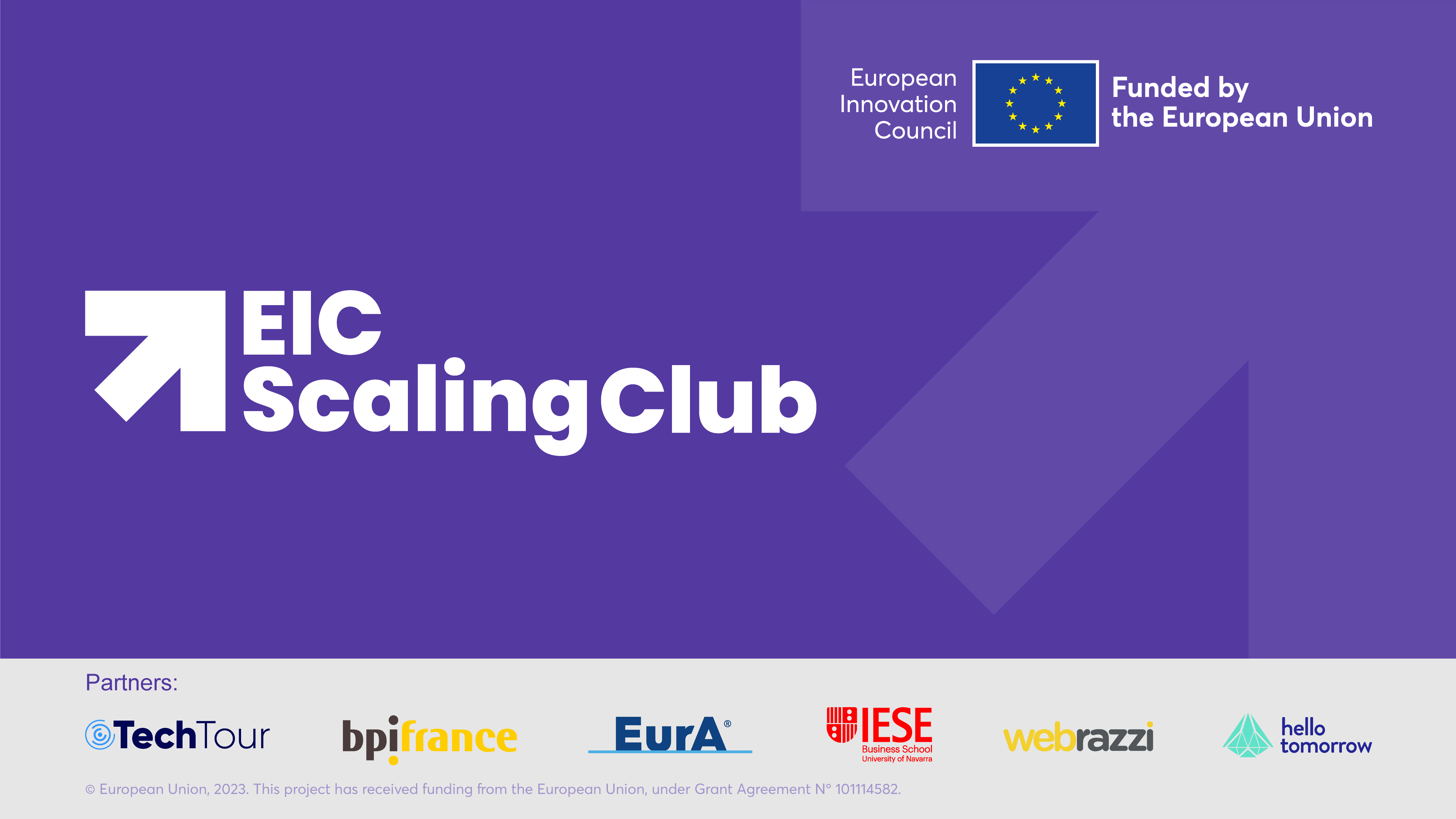
The EIC Scaling Club is a curated community where 120+ European deep tech scale-ups with the potential to build world-class businesses and solve major global challenges come together with investors, corporate innovators and other industry stakeholders to spur growth.
The top 120+ European deep tech companies will be carefully selected from a pool of high-growth scale-ups that have benefitted from EIC financial schemes, other European and national innovation programmes, and beyond.
The EIC Scaling Club is an EIC-funded initiative run in partnership by Tech Tour, Bpifrance (EuroQuity), Hello Tomorrow, Tech.eu (Webrazzi), EurA and IESE Business School.
Subscribe to our newsletter here to stay up-to-date!
Related Articles
Recent Articles
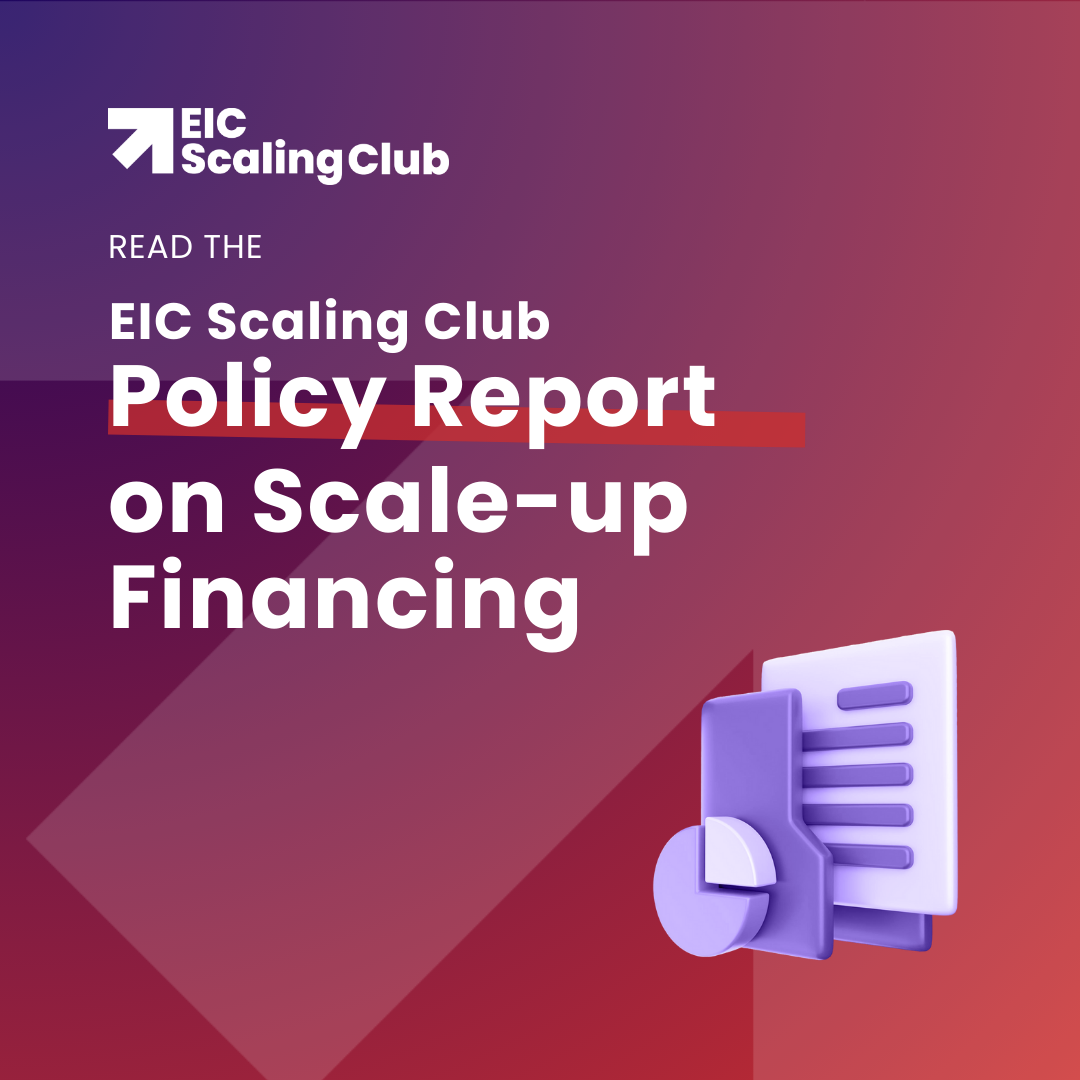
Our new Policy Report reveals a mismatch between the EU’s long-term regulatory vision and scaleups' immediate capital needs
23 Jan 2026
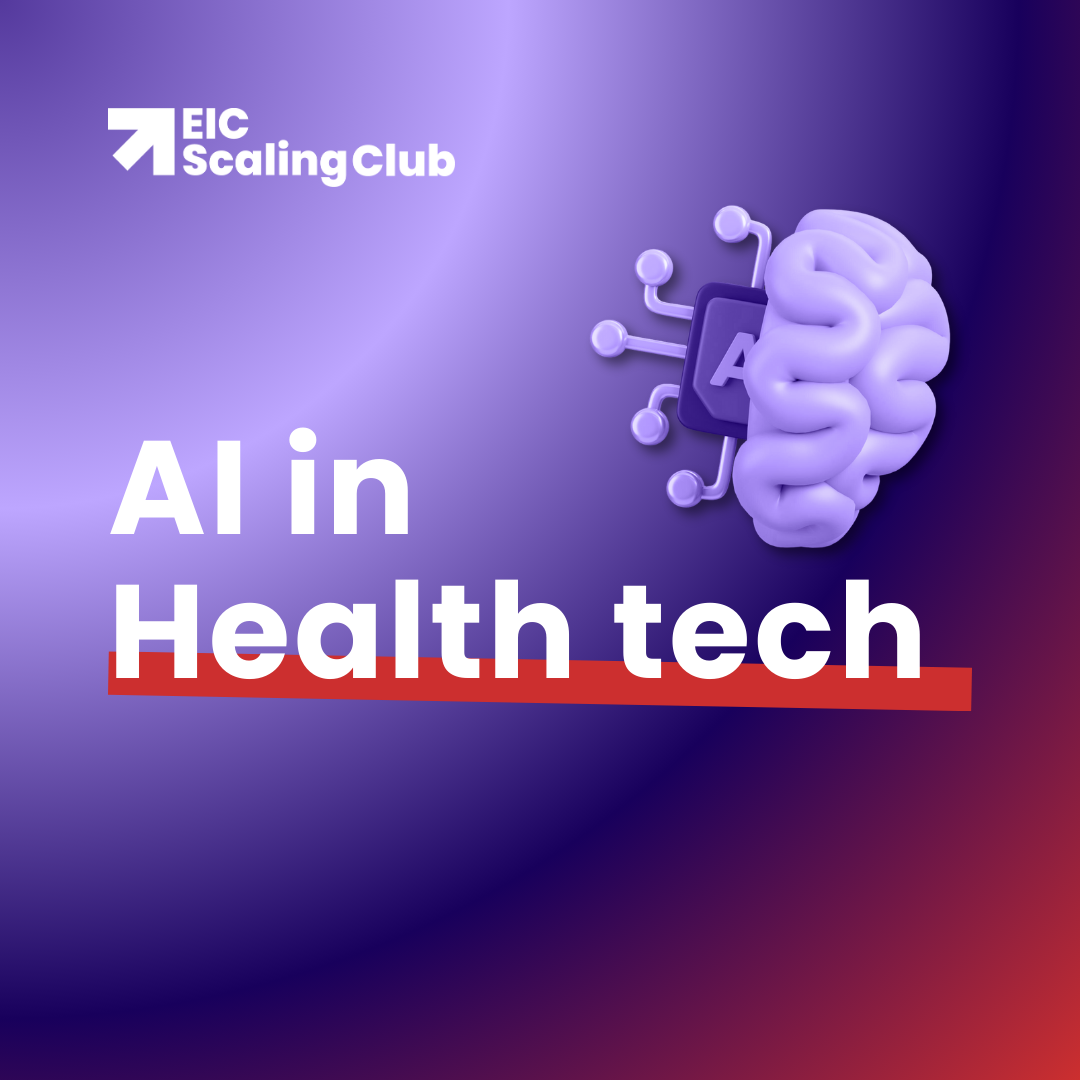
AI in health tech: EIC Scaling Club companies advancing diagnosis, care and treatment
13 Jan 2026
.png)
cylib secures €63.4 million to scale LFP battery recycling in Europe
7 Jan 2026
